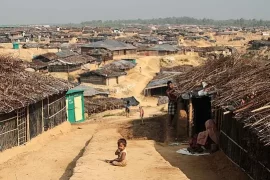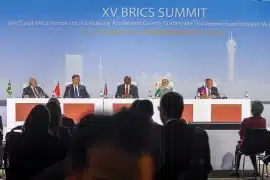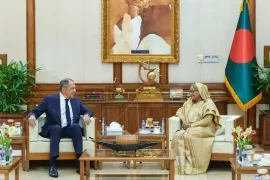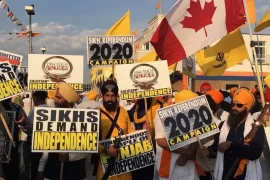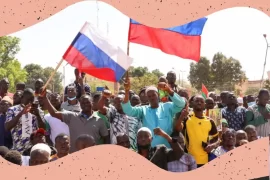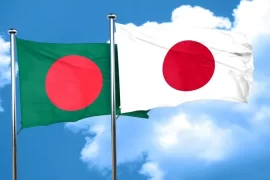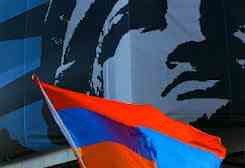In every week, a lot of seminars are being held on peacekeeping in different platforms but the contributions of troops contributing countries (TCCs) are regarded very poorly there. While discussing the contributions of TCCs, most of the diplomatic gurus only focus on the realist account of International Relations. They argue that these countries participate in peacekeeping for their own interest. But this realist logic does not work when it is found that some small states not powerful ones remain at the top among TCCs. It is clearly found that these countries do not have any strategic interest or political benefit for peacekeeping. Sometimes the supporters of the realist account puts emphasis only on financial benefits. It argues that the TCCs are earning foreign currencies by sending troops to the UN operations because it is a source of remittance. But is the equation so simple? Then why do a few countries remain consistently at the top among the contributors? Why do other aid receiving countries or LDCs not contribute troops? There must be some other factors. Let us look into the matter.
Bangladesh, India and Pakistan have been remaining as the top tri-TCCs in the UN peace keeping operations respectively from top to third. Bangladesh sent a group of officers to the United Nations Iran–Iraq Military Observer Group (UNIIMOG) in 1988 which was the beginning of contribution of Bangladesh to UN mission. Then a group of observers were sent to Namibia in 1989. After that Bangladesh started sending battalion strength contingent to different UN operations and the journey continues.
It has never sought any sort of political or strategic benefits from the country where ever it deployed peacekeepers. It did not show any intention to send troops for strategic purpose and took their soldiers back after the operation. Bangladesh has not been using its soft power in the troops receiving countries. No diplomatic relation has been established with the troops receiving countries in most of the cases. Many developed countries, at present, send only a few troops in an UN operation and claim that they are also contributing troops in those operations. This clever approach of participation is named as ‘token participation’ by the IR scholars. This token participation gives the participating country an opportunity to raise voice in decision making as troops contributing country. Therefore, they remain vocal at highest decision making fora. And so, this does not serve the purpose of Department of Peacekeeping Operations (DPKO) of the UN. The DPKO has to depend on the developing countries like Bangladesh for amalgamate sufficient troops for an operation. This token participation expresses clever motives of developing countries. On the other hand, the countries like Bangladesh have been really sending contingents of troops for decades without showing any intention.
Moreover, the brown colored skin of the Bangladeshi soldiers makes them more acceptable in any conflicting regions. Some African countries refused to take white soldiers by claiming that this creates fear to the ultra poor and illiterate African people. This sort of problem does not arise in case of Bangladeshi peace keepers. In fact, Bangladeshi peacekeepers are warmly accepted to both the African region and the European region.
Now let’s look at the disciplinary and interpersonal issues in implementation level of the UN peacekeeping operations. IR scholar Alex J. Bellamy says ‘the relationship between each agency, the special representative of the Secretary General, who has overall responsibility for a UN operation, and the military force commander is often ambiguous.’ Force commander may be from one contingent and the deputy commanders may come from other contingents. The authority of the UN in the implementation level is nominal and the contingents usually take decisions in their own ways. Moreover, the loyalty remains on own governments beyond the UN. This makes the peacekeepers more adhere to their own rules of engagement and they may choose whether they obey the force commander in the operation.
Bangladeshi Peace keepers have shown a good record in terms of discipline compared to other TCCs. Bangladeshi peacekeepers gained recognition from the deployed countries. Sierra Leon announced Bengali as its second official language to recognize the efforts of Bangladeshi Peacekeepers in their country. The President of Sierra Leon visited Bangladesh in 2011 to express his gratitude.
Again, professional quality of the personnel and their primary motivations are vital for performing peacekeeping activities. Bangladeshi peacekeepers had been maintaining good interpersonal and professional relationship with the commanders of other countries. There are very few complain against the Bangladeshi peace keepers compared to the peacekeepers of other countries. In fact, only one incidents of official complain happened. One Canadian Commander complained against the Bangladeshi peacekeepers. On a whole, Bangladesh has been able to maintain a wonderful record of discipline as a troops contributing country. This has put Bangladesh ahead of the other TCCs like Pakistan, India, Nigeria etc.
Bangladesh is ahead in terms of capacity to respond immediately to the UN call. Bangladesh has been showing its capacity to respond in emergency UN calls. And the preparedness of the Bangladesh for sending troops has been praised from key peace keeping personnel including UN Secretary General. During the racial fighting and extra judicial killings in December 2013 in South Sudan, Bangladesh could send one Infantry Battalion and a Police unit within shortest possible time. Bangladesh even sent all female police contingent to Haiti. This has been remarked as an excellent preparedness of Bangladesh for sending even female contingent in urgent response. Remembering this, in his speech, Secretary-General Ban Ki-moon said, ‘A terrible earthquake struck Haiti. … In circumstances such as these, women peacekeepers have a special role. ….To boost security in the camps, we issued an urgent call to our troop contributors. Bangladesh responded immediately. You deployed an all-female formed-police unit to Haiti. They have helped fight crime and prevent rapes and assaults. They distributed water, food and medicines.’
Again, Bangladesh Institute of Peacekeeping Operation Training (BIPSOT) is constantly pursuing to achieve excellence in peacekeeping. BIPSOT has been gaining capacity to act as an international or regional training centre for peace support operation. This preparedness has put Bangladesh clearly ahead of among contributors in UN peacekeeping.
Now the question is – why should Bangladesh not go for gaining political benefits from this contribution in peacekeeping? When the other countries are using their diplomatic organs to ensure economic and political benefit, Bangladesh is not going in that direction. India is trying to utilize the opportunities in Africa with their peacekeepers and diasporas. So time has ripened for Bangladesh to utilize the soft power in the region, specifically where the Bangladeshi peacekeepers have contributed. For this purpose more diplomatic activities can be initiated. Historically, every country has been utilizing its competitive advantage in managing international relations. Now the capacity of Bangladesh in peace keeping operations has become a competitive advantage. This advantage can be channeled through diplomatic means which will create markets for Bangladeshi goods, creates job opportunities for skilled and semi-skilled human resources.
Again, Bangladesh is now standing at a position where it can claim that it is sharing the burden of international peacekeeping. Few decades earlier peace, security and development were defined as so called ‘White Man’s Burden.’ Through contributions in UN peace keeping operations, Bangladesh and other developing countries have proved that only white men cannot bear the burden. The brown, the black, all human are sharing this burden. Now time has come for utilizing this burden through diplomatic means.
The writer is an Assistant Secretary, Ministry of Foreign Affairs, Govt. of People’s Republic of Bangladesh

